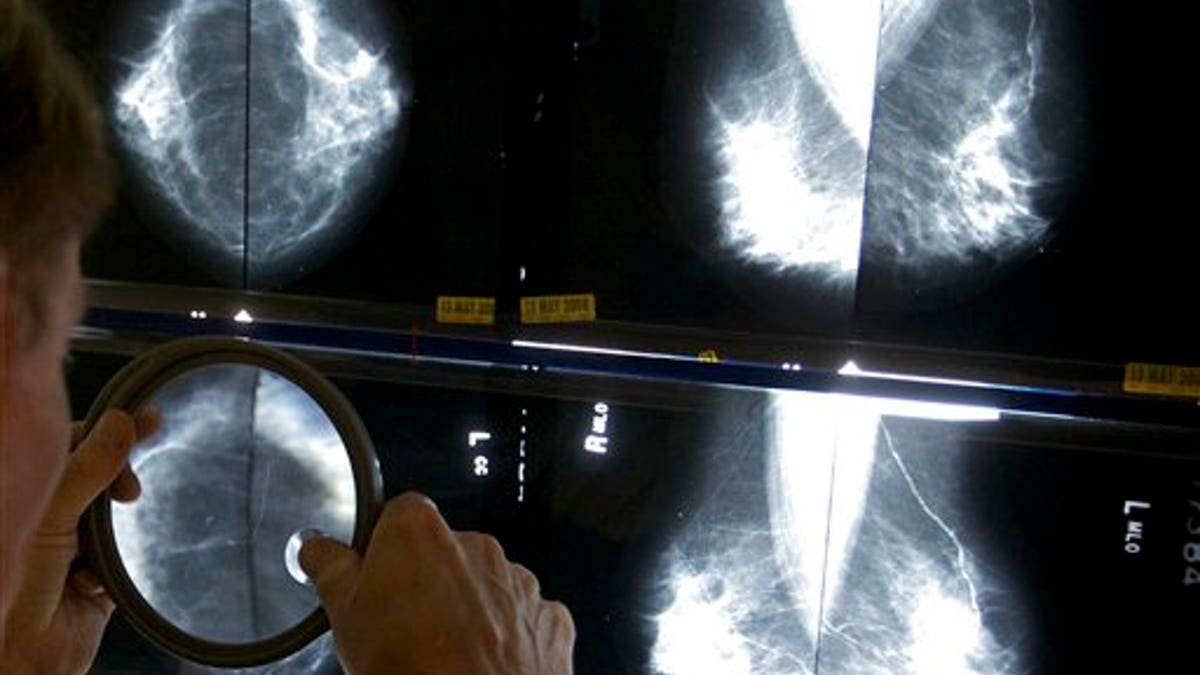
FILE - In this May 6, 2010 file photo, a radiologist uses a magnifying glass to check mammograms for breast cancer in Los Angeles. (AP Photo/Damian Dovarganes, File)
In between the seamless stream of conversation between mother and daughter—jumping from holiday gifts for the children to the adults’ lifetime Girl Scouts membership—they chat about their breast cancers.
Sitting together at a Seattle restaurant, Colleen Stevens recalls the time the two went wig shopping. Her daughter, Beth Caldwell, eventually decided to go bareheaded. They talk about their shared oncologist, Eddie, as if he’s a relative. (Ms. Caldwell exchanges texts with him and they are working on a book together.)
The mother and daughter barely eat the Gorgonzola and wild mushroom pizzas sitting in front of them. “The chemo,” says the 67-year-old Ms. Stevens, who goes by the nickname Susi. “It kills your appetite.”
Ms. Caldwell, who is 39, was diagnosed in March 2014 with Stage 4 metastatic breast cancer that has spread to her brain, liver and bones. She is continuing treatments but knows her reality: The cancer isn’t going away; it will eventually take her life. Metastatic breast cancer patients live an average of three years after diagnosis.
Just over a year after her diagnosis, Ms. Caldwell’s mother was diagnosed with Stage 2a triple negative breast cancer, a particularly aggressive type.
Their cancers aren’t related, nor are they linked by known genetic mutations.
“You have to live fearing that the cancer is going to come back,” Ms. Caldwell tells her mother. “And I have to live knowing it’s going to kill me.”
